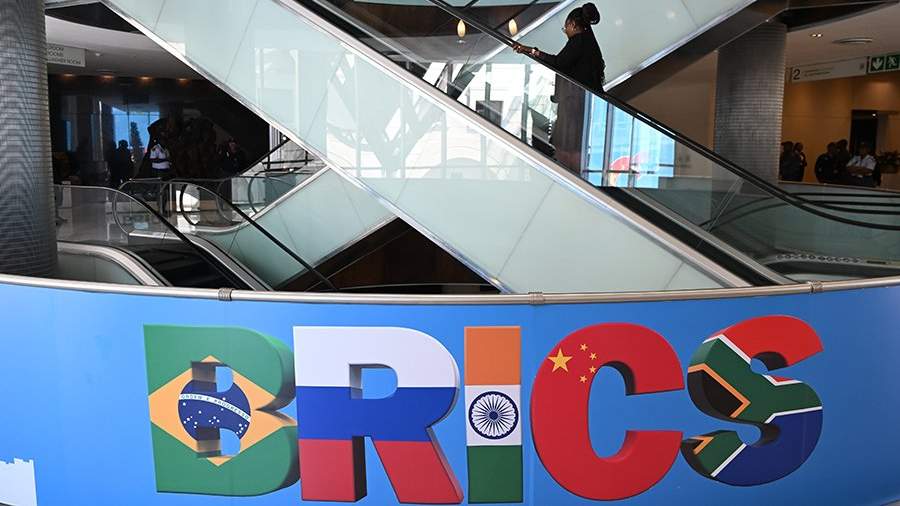
Ethiopia’s Pragmatic Path in BRICS
By Henok Tadele Haile
When Ethiopia gained admission into the prestigious BRICS bloc, a wave of jubilation resounded across the country. This monumental event signals a coming of age for Africa’s second most populous nation on the global stage.
This modern alliance of major emerging economies promises to confer advantages that Ethiopia can leverage for national development. However, astute statecraft is imperative to reap gains while safeguarding interests.
At the 15th summit in Johannesburg, Ethiopia was warmly welcomed into the prestigious BRICS bloc, which represents over 46% of the world’s population and 30% of global GDP. Even though more than 40 countries have shown interest in BRICS membership, Ethiopia’s admission to the group within two months of request was truly astounding.
The Ethiopian Prime Minister Abiy Ahmed hailed the “victory achieved through many struggles,” thanking the BRICS countries for their staunch support. He underscored how the bloc will empower South-South cooperation and reform multilateralism. Abiy also articulated Ethiopia’s strengths, from its young, dynamic workforce to intensive infrastructure development enhancing regional connectivity.
However, the initial euphoria and fanfare that greeted Ethiopia’s admission into the BRICS is now giving way to a sober and pragmatic assessment of what this milestone truly means for the country. How Ethiopia can judiciously leverage this opportunity remains to be seen.
While BRICS membership confers real advantages, adroit statecraft is key to unlocking benefits while safeguarding national interests.Undoubtedly, Ethiopia’s BRICS membership heralds a new era brimming with potential. If managed adeptly, it can become a catalyst for inclusive development and ensure Ethiopia’s ascent as a pillar of a new world order.
BRICS membership signifies growing recognition of Ethiopia’s immense economic and political potential. With over 120 million people and massive growth in recent years, Ethiopia offers a strategic gateway between Africa, the Middle East and Asia.
While BRICS membership undoubtedly confers major opportunities, Ethiopia also faces no shortage of new challenges on the global stage. The geopolitical chase board is truly a treacherous path. Thus, if not played in a balanced manner, geopolitical alignment of these magnitudes will certainly bring disaster. Any wrong move could even invite a more deadly response as the West clings on to its financial and political power.
If Ethiopia plays adeptly, in a balanced manner, BRICS membership could provide ample new opportunities for development. In this regard, past foreign policy missteps provide salient lessons for navigating this new arena astutely. Ethiopia should look back and learn from some of its worst geopolitical alignment mistakes of the past.
During the 1950 s-1970s, Ethiopia’s strategic partnership with Israel known as the Peripheral Country Strategy brought military assistance to Addis Ababa. Nevertheless, the partnership with Israel was a major miscalculation that had far-reaching consequences until today.
Gamal Abdel Nasser was a particularly adept geopolitical player, and he was quick to exploit Ethiopia’s mistakes. He knew that Ethiopia’s control of the Nile River was a major strategic asset, and he was determined to gain control of it. By pitting Ethiopia against the Arab world, Nasser was able to weaken Ethiopia and make it easier for him to achieve his goals.
For years, Cairo alienated Ethiopia from the Arab world and led to decades of hostility and conflict. The Arab nations retaliated against Ethiopia by supporting endless separatist groups, fueling internal strife that strained Ethiopian unity. Anyone who came in the name of separatism in Ethiopia received full Arab support, training, and endless petrodollars.
As a result, narrow nationalism, ethnic nationalism, religious fundamentalism, hatred, and separatism all arose as a result of this geopolitical alignment. Israel abandoned the Peripheral Country Strategy in the 1970s, but Ethiopia has been paying the price ever since the 1950s as all of Ethiopia’s major problems, such as disunity, ethnic politics, separatism, and hatred of the motherland was inculcated among citizens, are the result of our original sin: a wrong geopolitical alignment.
Navigating New Horizons with Balance and Foresight
As Ethiopia charts its course into the dynamic BRICS alliance, striking a prudent balance is imperative. This historic opportunity must be met with vision to maximize benefits and safeguard autonomy.
While BRICS confers advantages, overreliance could erode vital policy independence. Ethiopia must build judicious ties among BRICS members while maintaining key Western and African partnerships. An agile diplomatic balancing act will be required.
Equally vital, domestic stability and unity remain essential to fully capitalize on BRICS. Lingering conflicts and unrest could sabotage progress if unresolved. National development, governance, and regional leadership must continue grounding Ethiopia’s global engagement.
At its core, pragmatism focused on advancing core interests, not outdated ideologies, should direct strategy. With dexterity and foresight, Ethiopia can thrive by adroitly leveraging BRICS while preserving its sovereign compass.
New horizons beckon an ascendant Ethiopia. But realizing the promise ahead depends on statecraft carefully calibrated to serve the national vision. By learning from the past and judiciously balancing alliances, Ethiopia can optimize this new chapter to achieve strategic goals.
The path forward calls for agile diplomacy, pragmatism and vision to manage opportunities and autonomy. If navigated wisely, BRICS can catalyze Ethiopia’s ascent as a pillar of global progress. With skillful leadership, Ethiopia’s best days lie ahead.
New Business Ethiopia
